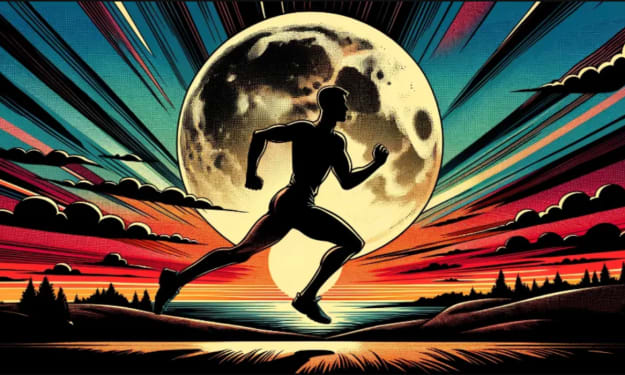
My dad is watching a National Geographic series on Blue Zones.
For those of you unfamiliar with the term, Blue Zones are not a new, fad male enhancement pill. Blue Zones are areas of the planet where people tend to live longer. A few scientists, journalists, and lifestyle bloggers have delved into these communities and emerged with content that ranges from vaguely interesting to wholly useless.
If we ignore the reductive urge to listify everything, then we can wipe away a few of the obvious “rules.” For example, it’s probably not surprising to learn that many older Blue Zoners tended not to overeat, didn’t overindulge in meat, and enjoyed a moderate amount of alcohol each week.
You may be mildly interested in the notion that Blue Zoners who lived the longest didn’t “exercise,” per se, but instead engaged in regular and less strenuous movements. They gardened or went for short walks with their dog or swept their house. They found things to keep them moving every 20 minutes or so, according to a study on the National Institute of Health website. Basically, they didn’t live sedentary lifestyles.
But one of the more fascinating results featured in the aforementioned study was this: the Blue Zoners who lived the longest tended to be part of a healthy, supportive community.
Duh Doy, People Need People
It may seem glaringly obvious when framed this way, but you need other people.
You specifically need other people who are healthy to be around.
Let me borrow another thing from my father for this piece. When I was growing up, my dad would indicate his displeasure with one of my friends by reminding me, “You can judge a man by the people he surrounds himself with.”
Besides being a sick dad burn, it turns out you can also gauge your own mental health based on the people around you.
Here’s a wild excerpt from the summary of the NIH Blue Zones article:
Health behaviors are contagious, Buettner said*. Deleterious behaviors (e.g., obesity, smoking, excessive drinking, loneliness, unhappiness) are also contagious. The world's longest-lived people “curate” social circles around themselves that support healthy behaviors.
*Dan Buettner is the guy who coined the Blue Zones term and has led several projects researching these communities.
I was particularly struck by the idea that “loneliness” and “unhappiness” are contagious behaviors. It initially struck me as absurd. I cannot cough on someone and give them the sad.
Yet, there is evidence that if you are surrounded by misery, you yourself could become miserable. Perhaps you find yourself imitating your friends, perhaps you are merely an empathetic person, or perhaps you’re sad at how often they’re sad. Whatever the answer, this study believes you could be rewiring your brain by exposing it to all the melancholy.
Depression can impact the physical makeup of your mind, encouraging more and more severe depression in the future, says some science. This is from another abstract on NIH:
A great body of evidence suggests that depression causes changes in neuroplasticity in specific regions of the brain which are correlated to symptom severity, negative emotional rumination as well as fear learning. Depression is correlated with atrophy of neurons in the cortical and limbic brain regions that control mood and emotion.
Essentially, depression spurs a biological change in the makeup of your mind. For those of us who have taken antidepressants (hi, it’s me, I’m the problem, it’s me), the path to restoring the biological health of your brain can take weeks or longer.
Speaking from experience, I can point to several stages of my life when I was immersed in a toxic community. I was steeped in that poison until it infiltrated my every pore. I eventually abandoned everyone I knew from that stage of my life and started anew. It paid off. I found myself gradually becoming happier. Like these goddamn balloons.

Notably, that does not mean you abandon struggling friends or family. It does not mean you should isolate yourself to prevent spreading the sad. It does mean you should seek out therapy and potentially antidepressants. But one small step you can take is spending more time with that friend who is infectiously positive. They might spread the happy to you.
What Else Did They Say About Blue Zones?
There’s a lot of questionable material in the findings. I could peck at it all day and continuously reveal buried biases and sketchy results. But it’s interesting to peer at people who have lived happy and long lives and wonder at their success (even if their lives don’t provide step-by-step instructions for our own ramblings).
I’ve posted the full abstract summary on my Substack for you to peruse, but my own takeaways are simple: Eat less meat, be more active, and tend your relationships. And have a few glasses of wine a week. Even the giddiest centenarian has a shitty Monday (and Tuesday). It’s okay to unwind with Sauvignon Blanc and watch an old sitcom when you’re down.
It’s also okay to ask for help. You deserve joy and satisfaction, and sometimes we need therapy and medicine to get better. I did.
But also, stop buying into the “we’re all introverts and hate human interaction” trend being pushed aggressively (and subtly!) on social media and via mass media marketing. Even if you are an introvert, you need human interaction. You need people who care about you — obviously — but who you care about in return. Relationships are often nuanced and plodding. We cannot settle for instant gratification at the expense of planting trees for our future.
Without shade, we’ll burn. Tend your gardens, friends.
You can read more of CD Mosby's Midwest Radical newsletter on his Substack.
About the Creator
CD Mosby
CD Mosby is an author and journalist. He hopes his words bring you a sliver of joy.
Reader insights
Outstanding
Excellent work. Looking forward to reading more!
Top insight
Heartfelt and relatable
The story invoked strong personal emotions






Comments (3)
Amazing job congratulations 🎉🎉🎉 top story
I have never heard of Blue Zones before but all of the advice that you propose here makes sense. A balanced life surrounded by good people supporting each other - recipe for longevity!
great job what are you waiting for you can join my friends and read what I have just preperd for you